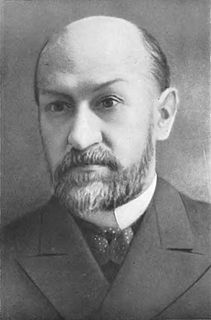 W
WVasily Vladimirovich Bartold, who published in the West under his German baptism name, Wilhelm Barthold, was a Russian orientalist who specialized in the history of Islam and the Turkic peoples (Turkology).
 W
WJoel Beinin is Donald J. McLachlan Professor of History and professor of Middle East history at Stanford University. From 2006 to 2008 he served as director of Middle East studies and professor of history at the American University in Cairo.
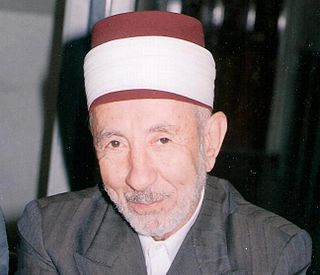 W
WMohammed Said Ramadan Al-Bouti was a notable Sunni Muslim scholar who was also known as "Shaykh of the Levant". He was killed on 21 March 2013, during the Syrian civil war, reportedly in a bomb explosion, though "many questions about the death" have been raised by videos of the scene.
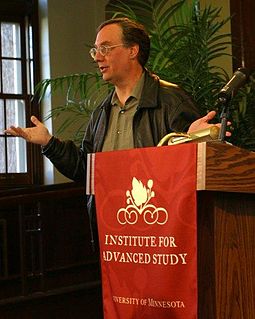 W
WJohn Ricardo Irfan "Juan" Cole is an American academic and commentator on the modern Middle East and South Asia. He is Richard P. Mitchell Collegiate Professor of History at the University of Michigan. Since 2002, he has written a weblog, Informed Comment (juancole.com).
 W
WLawrence Davidson is a retired professor of history from West Chester University in West Chester, Pennsylvania. He is the author of Islamic Fundamentalism, Cultural Genocide and has focused his academic research on American foreign relations with the Middle East.
 W
WMarc d'Anna, writing under the pen name Alexandre del Valle, is a Franco-Italian writer, professor, columnist, and political commentator. He is known primarily for his analysis of Islamic extremism, and his criticism of Erdoğan's neo-Ottoman, Islamist, and post-Kemalist Turkey. Del Valle is a proponent of the "PanWest paradigm"—the cooperation between the West and Russia against radical Islamism—and coined the concept of "Red-green-brown alliance" in 2002.
 W
WDavid Ede was an American scholar of Islam.
 W
WIain Edgar was a social anthropologist at Durham University. He was an expert in the field of dreams and dreaming, and a specialist in altered states of consciousness and mental health. Starting his career in social work, Edgar received a PhD from the University of Keele, where he studied under Ronnie Frankenberg. His thesis Dreamwork, Anthropology and the Caring Professions: A Cultural Approach to Dreamwork discusses a wide range of psychodynamic possibilities and develops a method to work with dreams within a professional care environment.
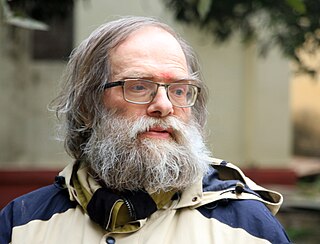 W
WKoenraad Elst is a Flemish author and right wing Hindutva proponent, known primarily for his support of the Out of India theory. He has also engaged himself with the Flemish movement, for direct democracy and Flemish secession.
 W
WJohn Louis Esposito is an Italian-American academic, professor of Middle Eastern and Religious studies, and scholar of Islamic studies, who serves as Professor of Religion, International Affairs, and Islamic Studies at Georgetown University in Washington, D.C.. He is also the founding director of the Prince Alwaleed Center for Muslim–Christian Understanding at Georgetown.
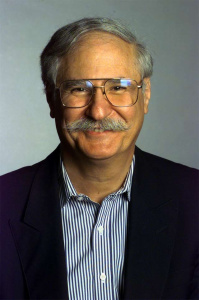 W
WSamih K. Farsoun, was a professor emeritus of sociology at American University, where he taught for thirty years until his retirement in 2003. He graduated from Hamilton College in New York. He received a master's degree in 1961 and a PhD in 1971, both in sociology from the University of Connecticut. He died June 9 of a heart attack while on a walk with his wife in New Buffalo, Michigan. He was a resident of Florida and Washington, D.C. During his career at AU, Farsoun served as chairman of the Department of Sociology for eleven years, chairman and member of numerous university-wide committees. He also established the Arab Studies minor in the Sociology department in 2001.
 W
WJean-Pierre Filiu is a French professor of Middle East studies at Sciences Po, Paris School of International Affairs and an arabist.
Sita Ram Goel was an Indian religious and political activist, writer, historian and publisher in the late twentieth century. He had Marxist leanings during the 1940s, but later became an outspoken anti-communist and also wrote extensively on the damage to Indian culture and heritage wrought by expansionist Islam and missionary activities of Christianity. In his later career he emerged as a commentator on Indian politics, and adhered to Hindu nationalism.
 W
WThe Great Mosque of Brussels is located in the Cinquantenaire Park. The original building was built by architect Ernest Van Humbeeck in an Arabic style, to form the Oriental Pavilion of the National Exhibition in Brussels in 1880. At that time the pavilion housed a monumental painting on canvas: “Panorama of Cairo”, by the Belgian painter Emile Wauters, which enjoyed major success. However, lack of maintenance in the twentieth century caused the building to gradually deteriorate.
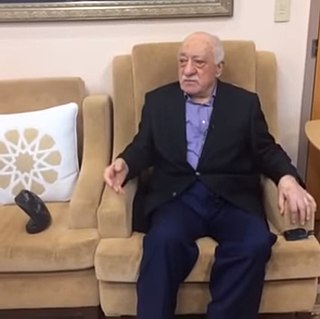 W
WMuhammed Fethullah Gülen is a Turkish Islamic scholar, preacher, and a one-time opinion leader. Gülen is designated an influential Ottomanist, Anatolian panethnicist, Islamic poet, writer, social critic, and activist–dissident developing a Nursian theological perspective that embraces democratic modernity, as a citizen of Turkey he was a local state imam from 1959 to 1981. Over the years, Gülen became a centrist political figure in Turkey prior to his being there as a fugitive. Since 1999, Gülen has lived in self-exile in the United States near Saylorsburg, Pennsylvania.
 W
WDr H.A. Hellyer is a British scholar and analyst. He writes on the politics of the modern Arab world, religion and politics in Europe and internationally, majority-minority relations, security issues and the Muslim world–West relations. He is a senior nonresident fellow at the Atlantic Council's Center for the Middle East, and associate fellow at the Royal United Services Institute. Previously a nonresident fellow at the Brookings Institution's Foreign Policy section, and he was also Democracy Non-Resident Fellow for the academic year 2014 to 2015 at the John F. Kennedy School of Government of Harvard University.
 W
WThe International Islamic Unity Conference is an international conference which is held every year during the Islamic Unity week in Tehran, Iran, and is organized by “the World Forum for Proximity of Islamic Schools of Thought”. The main target of the conference is devising the ways of unity for Islamic world, and likewise sympathy/consultation between scholars and scientists in order to approach their viewpoints in intended fields. The subjects of its meetings are determined based on divergent issues/problems of Islamic world. The meeting is kicked off with the attendance of many scholars, religious thinkers and prominent figures from diverse countries.
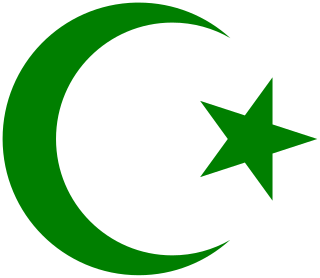 W
WStarting in the mid-1970s and 1980s, the international propagation of Salafism and Wahhabism within Sunni Islam favored by the Kingdom of Saudi Arabia and other Gulf monarchies has achieved what the French political scientist Gilles Kepel defined as a "preeminent position of strength in the global expression of Islam." Until the 1990s Saudi break-up with Muslim Brotherhood, interpretations included not only Salafiyya Islam of Saudi Arabia, but also Islamist/revivalist Islam, and a "hybrid" of the two interpretations.
 W
WFollowing the embargo by Arab oil exporters during the Israeli-Arab October 1973 War and the vast increase in petroleum export revenue that followed, the international propagation of Salafism and Wahhabism within Sunni Islam favored by the conservative oil-exporting Kingdom of Saudi Arabia and other Gulf monarchies achieved a "preeminent position of strength in the global expression of Islam." The Saudi interpretation of Islam not only includes Salafiyya but also Islamist/revivalist Islam, and a "hybrid" of the two interpretations.
 W
WThe Mirage is a book written by Jamal Sanad Al-Suwaidi, Director of the Emirates Center for Strategic Studies and Research in Abu Dhabi, UAE. This book, originally published in Arabic as “Al-Sarab”, is a review of the history, origin, evolution, practices and objectives of political Islam in Arab and Muslim societies. It also explains the danger of related political religious groups. Its title is a metaphor about the misleading religious solutions proposed by Islamist groups, to contemporary social problems.
 W
WIslamic extremism, Islamist extremism, or radical Islam refer to extremist beliefs associated with the religion of Islam. These are controversial terms with varying definitions, ranging from academic understandings to the idea that all ideologies other than Islam have failed and are inferior to Islam. This can also extend to other sects of Islam that do not share such beliefs. Political definitions include the one used by the government of the United Kingdom, which understands Islamic extremism as any form of Islam that opposes "democracy, the rule of law, individual liberty and mutual respect and tolerance of different faiths and beliefs".
 W
WIslamic fundamentalism has been defined as a puritanical, revivalist, and reform movement of Muslims who aim to return to the founding scriptures of Islam. Islamic fundamentalists are of the view that Muslim-majority countries should return to the fundamentals of an Islamic state that truly shows the essence of the system of Islam, in terms of its socio-politico-economic system. Islamic fundamentalists favor "a literal and originalist interpretation" of the primary sources of Islam, seek to eliminate "corrupting" non-Islamic influences from every part of their lives, and see "Islamic fundamentalism" as a pejorative term used by outsiders for Islamic revivalism and Islamic activism.
 W
WEfraim Karsh is an Israeli–British historian, the founding director and emeritus professor of Middle East and Mediterranean Studies at King's College London. Since 2013, he serves as professor of Political Studies at Bar-Ilan University. He is also a principal research fellow and former director of the Middle East Forum, a Philadelphia-based think tank. He is a vocal critic of the New Historians, a group of Israeli scholars who have questioned the traditional Israeli narrative of the Arab–Israeli conflict.
 W
WGilles Kepel, is a French political scientist and Arabist, specialized in the contemporary Middle East and Muslims in the West. He is Professor at the Université Paris Sciences et Lettres (PSL) and director of the Middle East and Mediterranean Program at PSL, based at Ecole Normale Supérieure. His latest english-translated book, Away from Chaos. The Middle East and the Challenge to the West was reviewed by The New York Times as “an excellent primer for anyone wanting to get up to speed on the region”. His last essay, le Prophète et la Pandémie / du Moyen-Orient au jihadisme d'atmosphère, just released in French, has topped the best-seller lists and is currently being translated into English and a half-dozen languages. The excerpt The Murder of Samuel Paty is presently released in the Issue 3 of Liberties Journal.
 W
WMartin Seth Kramer is an American-Israeli scholar of the Middle East at Shalem College in Jerusalem. His focus is on the history and politics of the Middle East, contemporary Islam, and modern Israel.
 W
WBernard Lewis, was a British American historian specialized in Oriental studies. He was also known as a public intellectual and political commentator. Lewis was the Cleveland E. Dodge Professor Emeritus of Near Eastern Studies at Princeton University. Lewis's expertise was in the history of Islam and the interaction between Islam and the West.
 W
WMohammed Taki Mehdi, commonly M. T. Mehdi was an Arab-American based in New York and one of the earliest pro-Palestinian activists in the United States, and often brash in his defense of the Palestinian cause. He held debates on television and radio with many supporters of Israel, including the rabbi Meir Kahane. He died of cardiac arrest at Bellevue Hospital in 1998.
 W
WThe Middle East Forum (MEF) is an American conservative think tank founded in 1990 by Daniel Pipes, who serves as its president. MEF became an independent non-profit organization in 1994. It publishes a journal, the Middle East Quarterly.
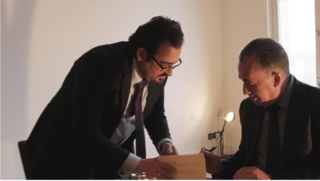 W
WNaseef Naeem is a Christian Syrian-German legal scholar specializing in Public and Constitutional law. He is an expert on legal and political affairs in the Middle East, Syria, and the Constitution of Iraq.
 W
WThe Oxford Centre for Islamic Studies (OCIS) was founded in 1985. It is a centre for the advanced study of Islam and Muslim societies located in Oxford, England, and a registered educational charity. Its Patron is The Prince of Wales. In 2012 it was granted a Royal Charter by Queen Elizabeth II. The governance of the Centre is managed by a Board of Trustees made up of scholars and statesmen from around the world, and representatives of the University of Oxford nominated by the Council.
 W
WPan-Islamism is a political ideology advocating the unity of Muslims under one Islamic country or state – often a caliphate – or an international organization with Islamic principles. Pan-Islamism differentiates itself from pan-nationalistic ideologies, for example Pan-Arabism, by seeing the ummah as the focus of allegiance and mobilization, excluding ethnicity and race as primary unifying factors. Pan-Islamism emerged during late-19th century as a global movement for Islamic reform and struggle against European imperialism. The major leaders of the Pan-Islamist movement were the triad of Jamal al-Din Afghani, Muhammad Abduh and Sayyid Rashid Rida ; who were active in anti-colonial efforts to confront European penetration of Muslim lands. They also sought to strengthen Islamic unity, which they believed to be the strongest force to mobilize Muslims against imperial domination.
 W
WPetro-Islam is a neologism used to refer to the international propagation of the extremist and fundamentalist interpretation of Sunni Islam derived from the doctrine of Muhammad ibn Abd al-Wahhab, a Sunni Muslim preacher, scholar, and theologian from the Najd region in central Arabia, founder of the Islamic doctrine and movement known as Wahhabism, favored by the Kingdom of Saudi Arabia and the other Arab states of the Persian Gulf. Its name derives from source of the funding, petroleum exports, that spread it through the Muslim world after the Yom Kippur War. The term is sometimes called "pejorative" or a "nickname." According to Sandra Mackey the term was coined by Fouad Ajami. It has been used by French political scientist Gilles Kepel, Bangladeshi religious scholar Imtiyaz Ahmed, and Egyptian philosopher Fouad Zakariyya, among others.
 W
WDaniel Pipes is an American historian, writer, and commentator. He is the president of the Middle East Forum, and publisher of its Middle East Quarterly journal. His writing focuses on American foreign policy and the Middle East.
 W
WThe rules and regulations concerning prisoners of war in Islam are covered in manuals of Islamic jurisprudence, based upon Islamic teachings, in both the Qur'an and hadith.
 W
WMasood Ashraf Raja is an associate professor of postcolonial literature and theory at the University of North Texas. He is also the editor of Pakistaniaat: A Journal of Pakistan Studies, an open access journal that he founded in 2009.
 W
WMaxime Rodinson was a French Marxist historian, sociologist and orientalist. He was the son of a Russian-Polish clothing trader and his wife, who both died in the Auschwitz concentration camp. After studying oriental languages, he became a professor of Ethiopian (Ge'ez) at the École pratique des hautes études. He was the author of a body of work, including the book Muhammad, a biography of the prophet of Islam.
 W
WOlivier Roy is a French political scientist, professor at the European University Institute in Florence, Italy. He has published articles and books on secularisation and Islam including "Global Islam", and The Failure of Political Islam. He is known to have "a different view of radical Islam" than some other experts, seeing it as peripheral, Westernized and part of a radicalized and "virtual" rather than pious and "actual" Muslim community. More recently he has written on the Charlie Hebdo shooting, and the November 2015 Paris attacks.
 W
WEdward Wadie Said was a professor of literature at Columbia University, a public intellectual, and a founder of the academic field of postcolonial studies. A Palestinian American born in Mandatory Palestine, he was a citizen of the United States by way of his father, a U.S. Army veteran.
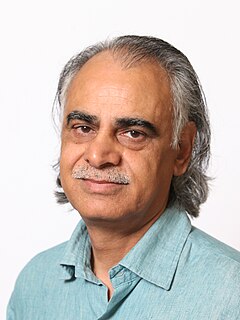 W
WZiauddin Sardar is a British-Pakistani scholar, award-winning writer, cultural critic and public intellectual who specialises in Muslim thought, the future of Islam, futurology and science and cultural relations. The author and editor of more than 50 books, Prospect magazine has named him as one of Britain's top 100 public intellectuals and The Independent newspaper calls him: 'Britain's own Muslim polymath'.
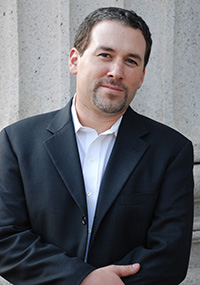 W
WJonathan Schanzer is an American author and senior vice president of research at the Foundation for Defense of Democracies. He oversees the work of the organization's experts and scholars.
 W
WSecret Affairs: Britain's Collusion With Radical Islam is a 2010 non-fiction book written by the British historian and journalist Mark Curtis which explores the United Kingdom's relationship with radical Islamism.
 W
WIslamic socialism is a political philosophy that incorporates Islamic principles into socialism. As a term, it was coined by various Muslim leaders to describe a more spiritual form of socialism. Islamic Socialists also often use the Quran to defend their positions. A Turkish Islamic socialist organisation, Anti-capitalist Muslims, openly challenged right-wing Muslims to read the Quran and "try to disprove the fact that it is leftist".
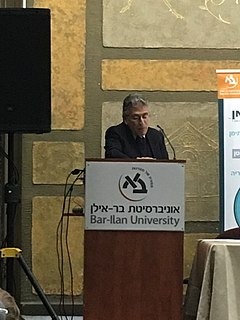 W
WNorman Arthur Stillman, also Noam, b. 1945, is an American academic, historian, and Orientalist, serving as the emeritus Schusterman-Josey Professor and emeritus Chair of Judaic History at the University of Oklahoma. He specializes in the intersection of Jewish and Islamic culture and history, and in Oriental and Sephardi Jewry, with special interest in the Jewish communities in North Africa. His major publications are The Jews of Arab Lands: a History And Source Book and Sephardi Religious Responses to Modernity. In the last few years, Stillman has been the executive editor of the "Encyclopedia of Jews in the Islamic World", a project that includes over 2000 entries in 5 volumes.
 W
WThe World Forum for Proximity of Islamic Schools of Thought (WFPIST) as well as Tehran's Ecumenical Society is a forum that was established on October 1990 by order of Ayatollah Seyed Ali Khamenei in Tehran for the reconciliation between different Islamic schools and branches.
 W
WThe Tunisian Constitution of 2014 was adopted on 26 January 2014 by the Constituent Assembly elected on 23 October 2011 in the wake of Tunisia's Jasmine Revolution that overthrew President Zine El Abidine Ben Ali. It was passed on 10 February 2014, replacing the constitutional law of 16 December 2011 that temporarily formed the basis of government after the suspension of the Constitution of 1959.
 W
WProtests during the playing of the United States national anthem have had many causes, including civil rights, anti-conscription, anti-war, anti-nationalism, and religious reservations. Such protests have occurred since at least the 1890s, well before "The Star-Spangled Banner" was adopted and resolved by Congress as the official national anthem in 1916 and 1931, respectively. Earlier protests typically took place during the performance of various unofficial national anthems, including "My Country, 'Tis of Thee" and "Hail, Columbia". These demonstrations may include refusal to stand or face the American flag during the playing of the Anthem.
 W
WWorld Assembly of Islamic Awakening is an Islamic-assembly which was formed in order to ensure the continuity/development of the "Islamic Awakening Movement" by increasing communication, interaction and transfer of experiences. The permanent secretariat of the assembly is located in Tehran, Iran. This Islamic assembly started its activities in 2011. Ali Akbar Velayati the senior adviser to the Supreme Leader in international affairs is the secretary-general of the convention(s).